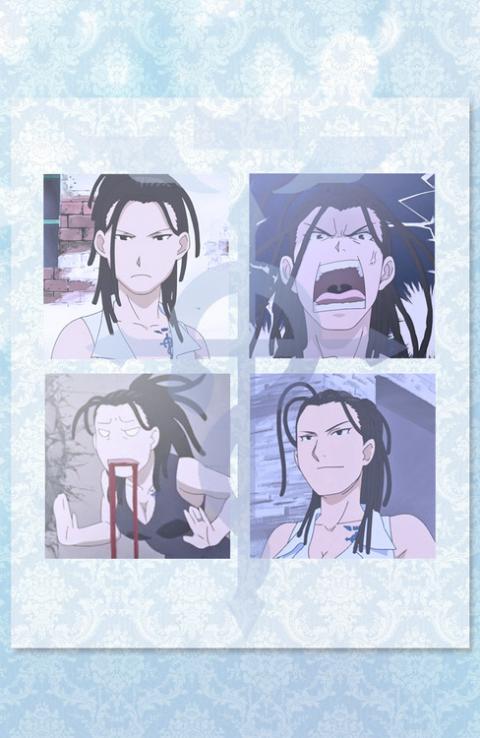September 14, 2014 - 14:21

As a part of the work I've been doing with the club I'm president of here on campus, EnAble, I've been trying to compile a list of fictional characters with disabilities. On the whole, I've been trying to focus on positive characters, but in some cases that has proven difficult. It's incredibly disturbing as to how many characters with disabilities are portrayed as somehow villainous. One of the few works I've found where most disabled characters are either portrayed more positively or in a very nuanced manner is the manga/anime series Fullmetal Alchemist.
I can lecture on for quite a while about why Fullmetal Alchemist is such a fantastic work, but I'll spare you most of that rant. Some reasons that are directly relevant to this course are that it has an incredibly high per-capita ratio of feminist portrayals of women in many spheres of society, thoughtful portrayals of people of color, and many disabled characters, and a wide range of ages portrayed as important characters.
I want to focus in particular on one character in Fullmetal Alchemist: Izumi Curtis, the alchemy teacher of our main characters, Edward and Alphonse Elric. Most of the disabled characters in this series have an acquired disability, usually somehow relating directly to the central conflicts of the story. (SPOILER ALERT!) Izumi's disability is that she is missing several of her internal organs, as a result of trying to revive her stillborn child via the in-universe magi-science, alchemy. She's also regarded as one of the most gifted capable alchemists in the series, one of the most powerful characters indeed in the entire country. Yet, she still chose to live her life in peace as a self-identified "housewife" who runs a butcher shop with her husband as helper. Her missing organs, however, often leave her bedridden. It will consistently shock her opponents in battle (as often happens in the series) that she will suddenly collapse when her disability acts up again and she topples over, coughing blood. Because of attempting to revive her child, though, she acquired the ability to do alchemy without a transmutation circle, and gained a great deal of knowledge of the way the world works, thus increasing her already prodigious alchemical abilities. (I'm happy to clarify more, but it requires the reader knowing some more mechanics of how the in-universe magiscience works)
The narrative of Izumi's story, and that of many other disabled characters in the story, is one that synthesizes a lot of themes that crop up for those of us in the disabled community whose disability is acquired. Acquired disability can be very difficult to come to terms with psychologically, as if maybe somehow we're paying for something we did. It emphasizes how cruel it can feel to have gone from being "healthy" and "strong" and "normal" in some way to being "damaged". Yet, in this case, despite or even maybe because of her disability, Izumi Curtis held on to and improved her passions and abilities. Her disability, at the same time that it severely limited her life, gave her more than she could have achieved without it. Her story has helped me to figure out how I can use my disability as a way to understand my life, and to try to improve upon what matters to me.

(Image source: http://queenamestris.tumblr.com/post/96573687813/make-me-choose-alphonseelrik-asked-olivier)
